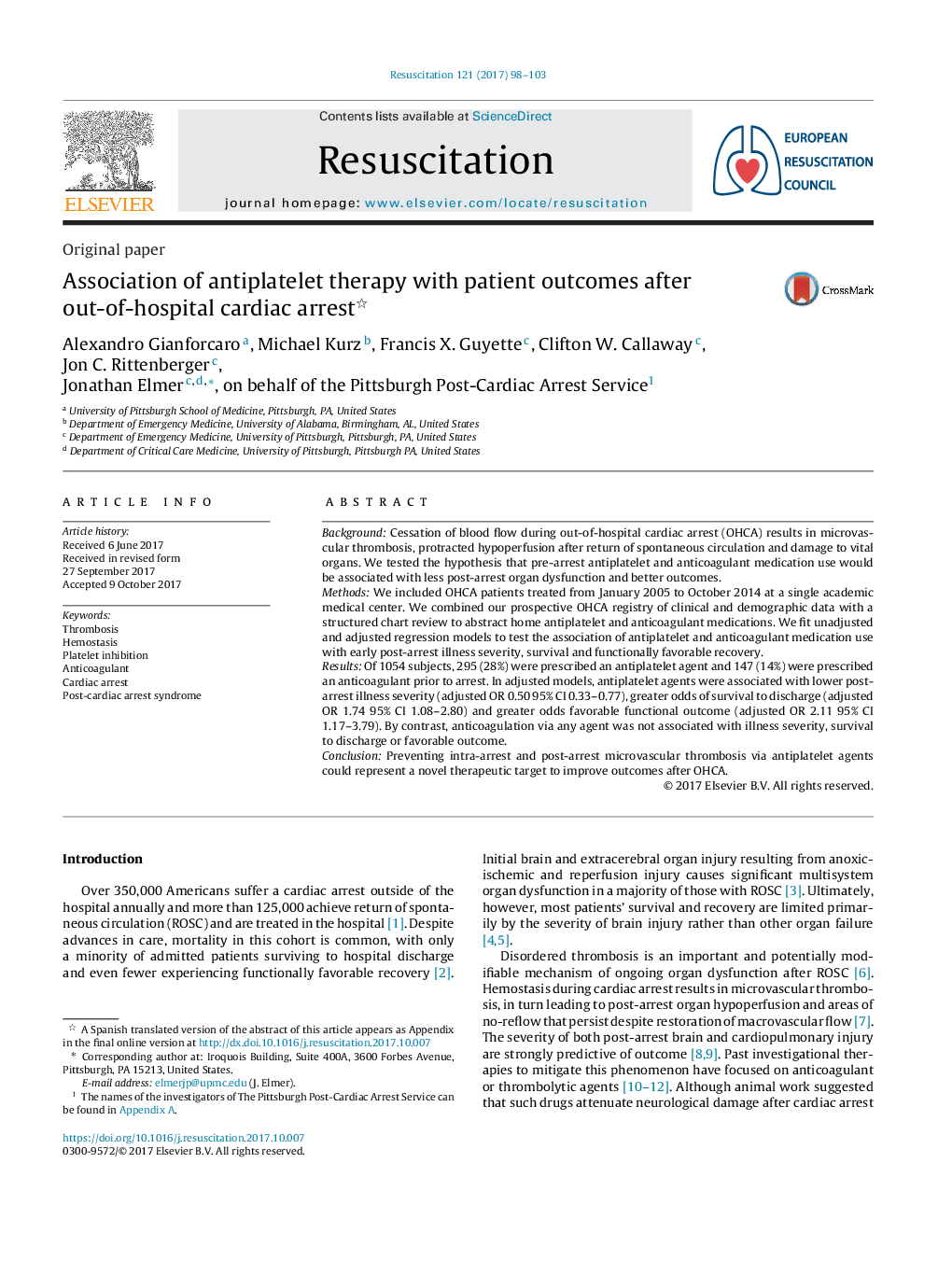| Article ID | Journal | Published Year | Pages | File Type |
|---|---|---|---|---|
| 5619786 | Resuscitation | 2017 | 6 Pages |
BackgroundCessation of blood flow during out-of-hospital cardiac arrest (OHCA) results in microvascular thrombosis, protracted hypoperfusion after return of spontaneous circulation and damage to vital organs. We tested the hypothesis that pre-arrest antiplatelet and anticoagulant medication use would be associated with less post-arrest organ dysfunction and better outcomes.MethodsWe included OHCA patients treated from January 2005 to October 2014 at a single academic medical center. We combined our prospective OHCA registry of clinical and demographic data with a structured chart review to abstract home antiplatelet and anticoagulant medications. We fit unadjusted and adjusted regression models to test the association of antiplatelet and anticoagulant medication use with early post-arrest illness severity, survival and functionally favorable recovery.ResultsOf 1054 subjects, 295 (28%) were prescribed an antiplatelet agent and 147 (14%) were prescribed an anticoagulant prior to arrest. In adjusted models, antiplatelet agents were associated with lower post-arrest illness severity (adjusted OR 0.50 95% CI 0.33-0.77), greater odds of survival to discharge (adjusted OR 1.74 95% CI 1.08-2.80) and greater odds favorable functional outcome (adjusted OR 2.11 95% CI 1.17-3.79). By contrast, anticoagulation via any agent was not associated with illness severity, survival to discharge or favorable outcome.ConclusionPreventing intra-arrest and post-arrest microvascular thrombosis via antiplatelet agents could represent a novel therapeutic target to improve outcomes after OHCA.
